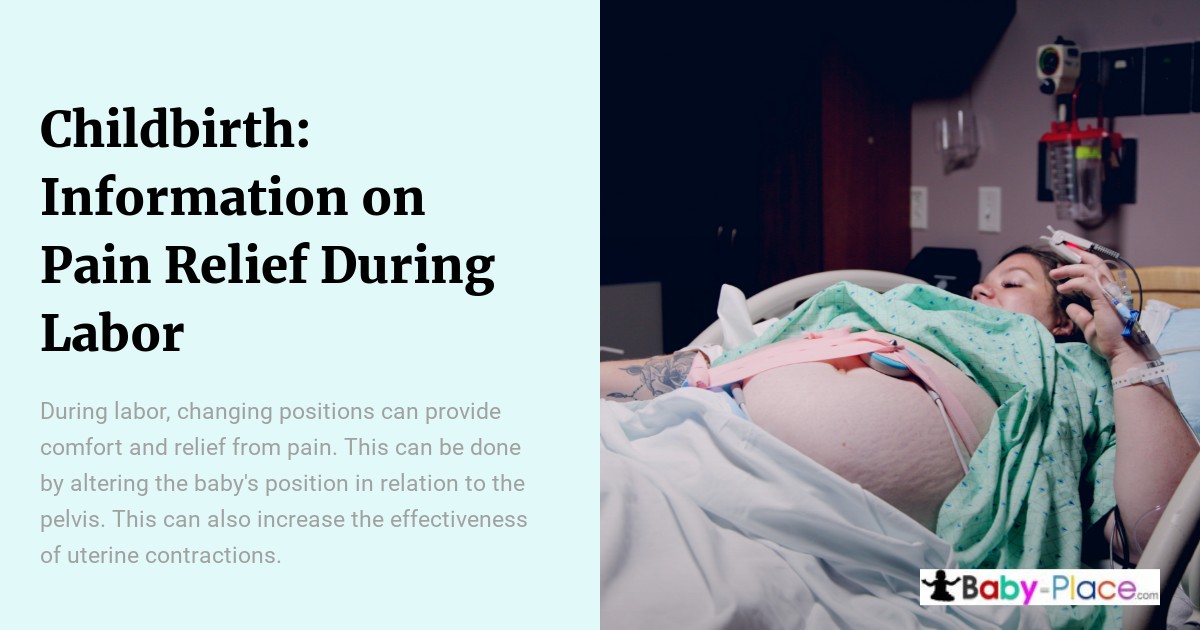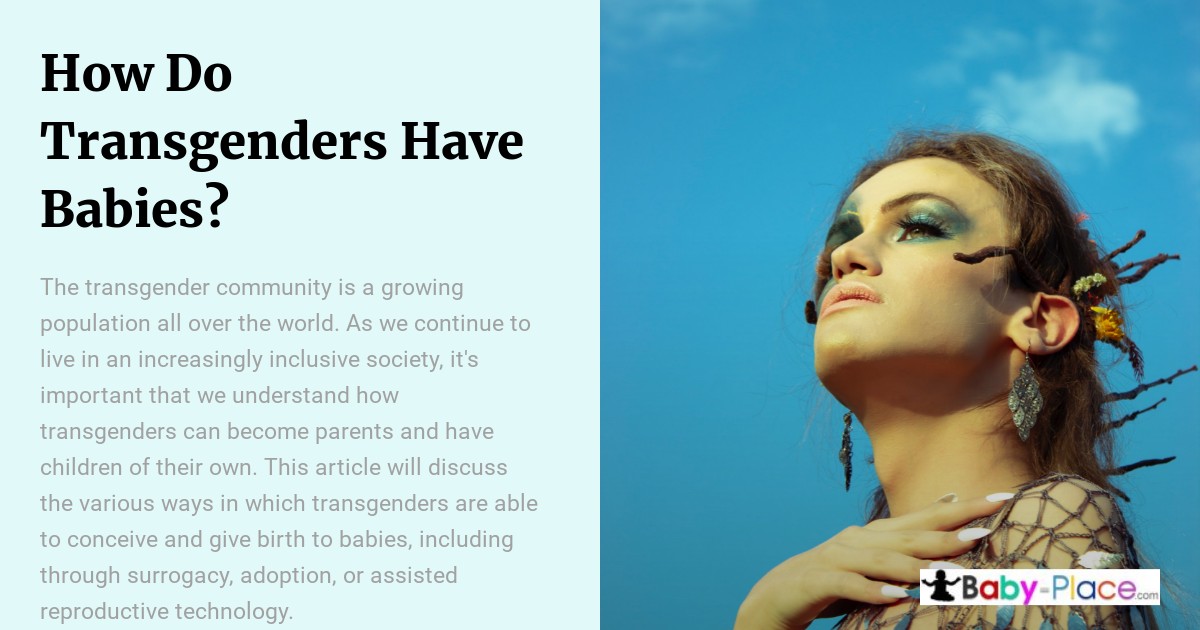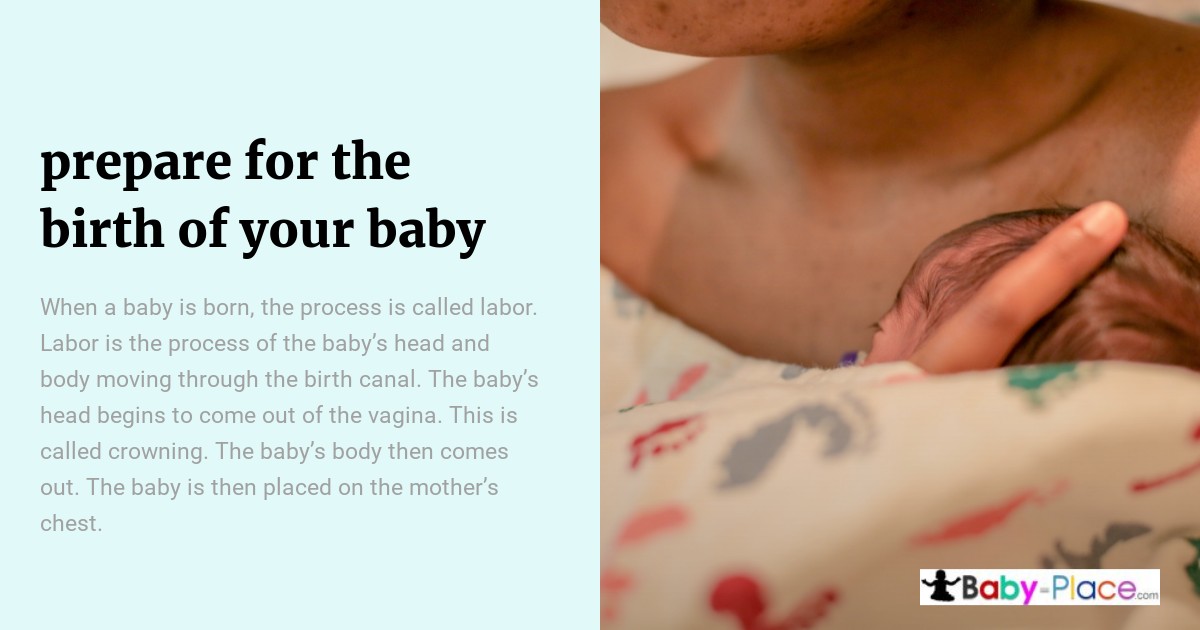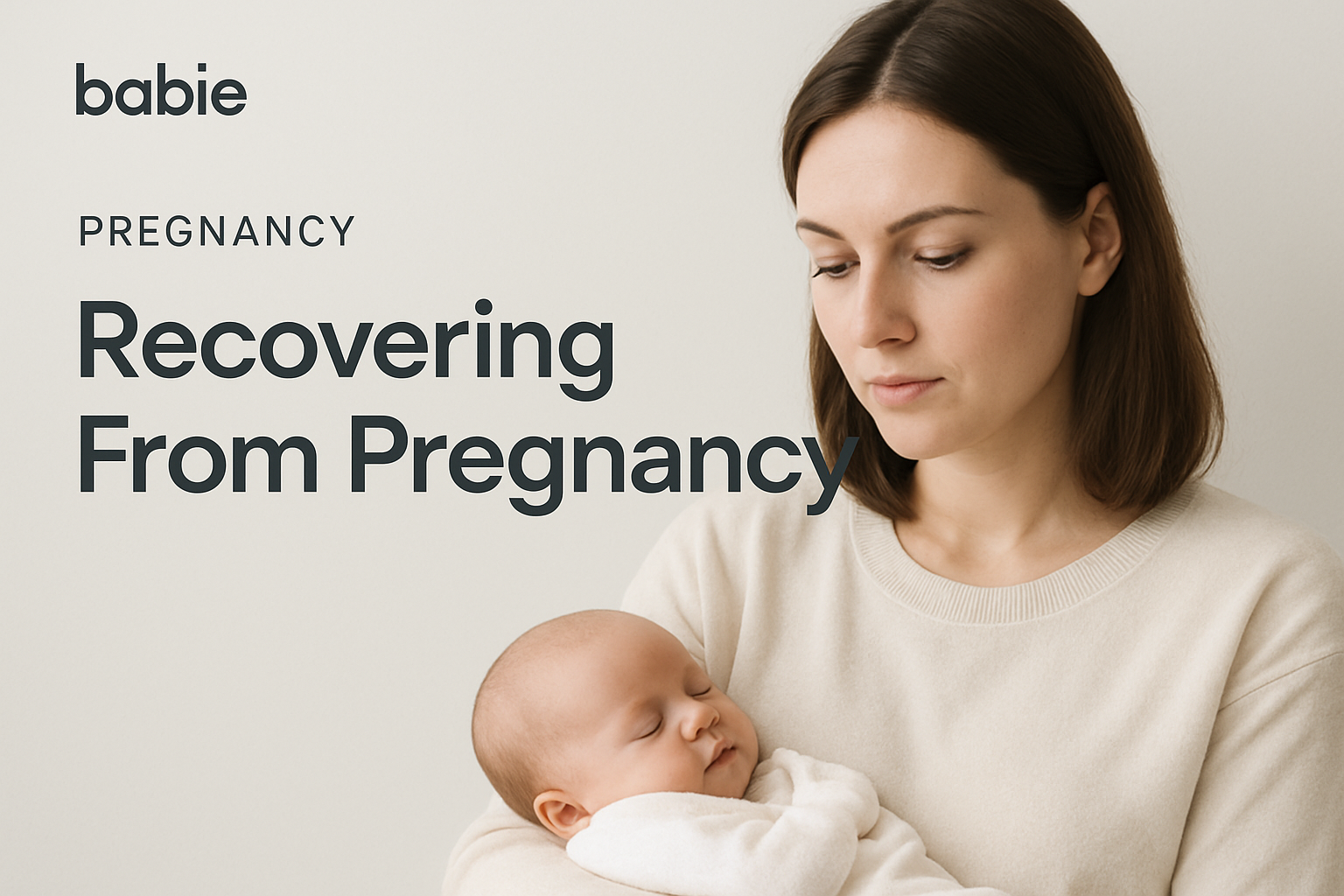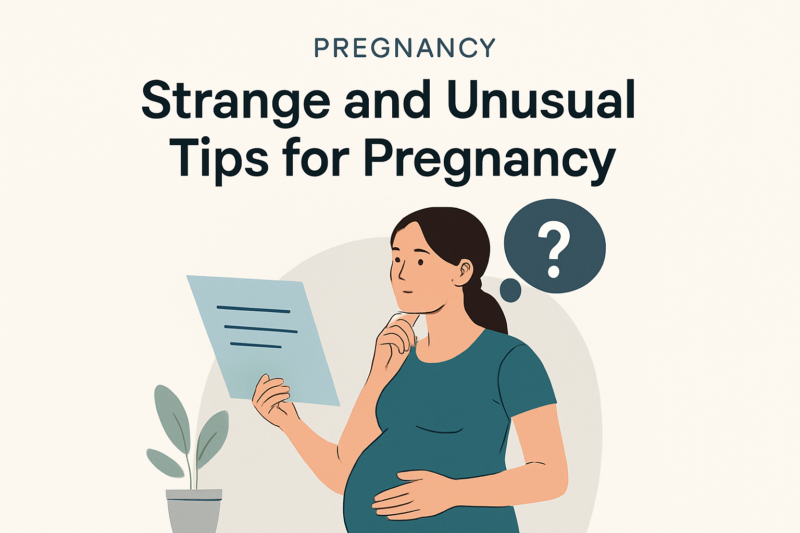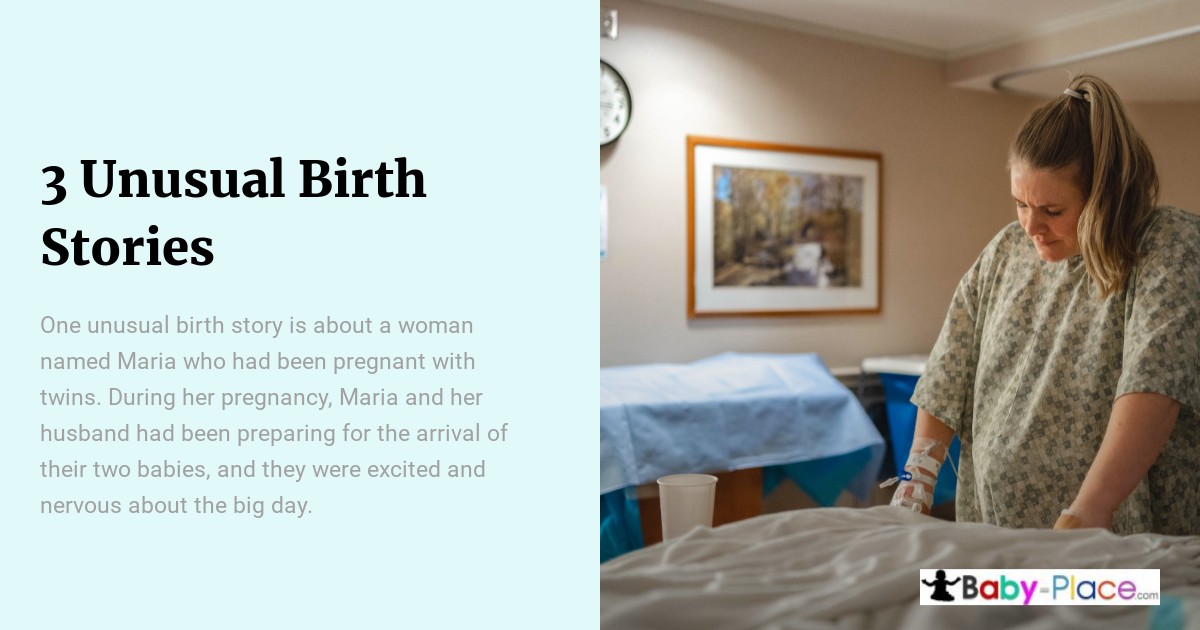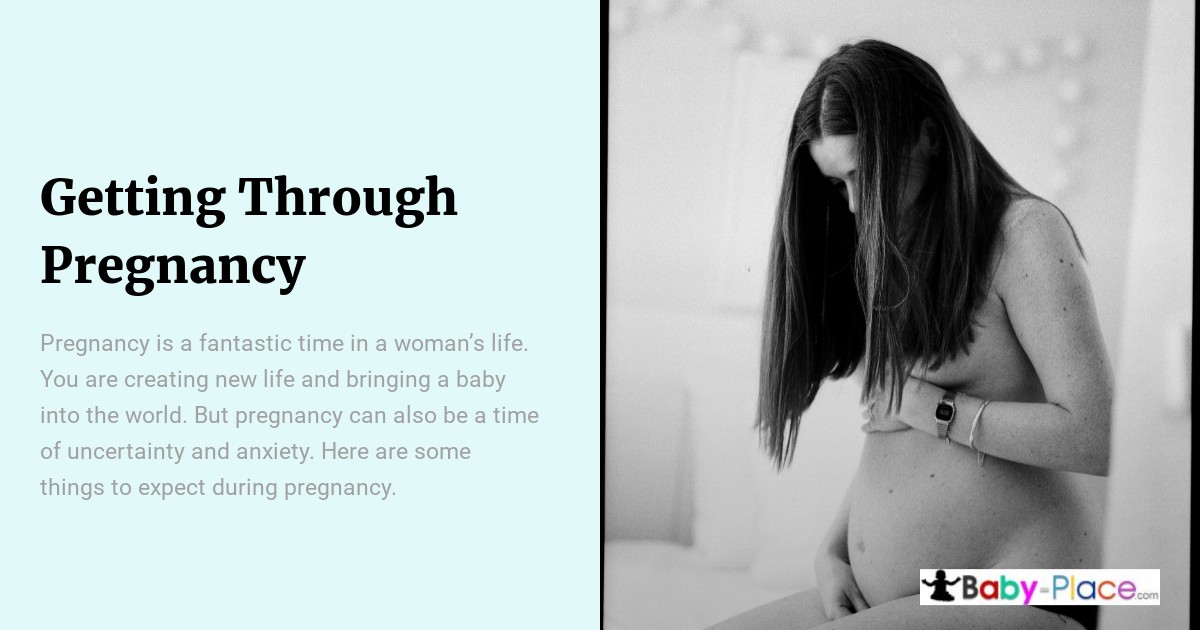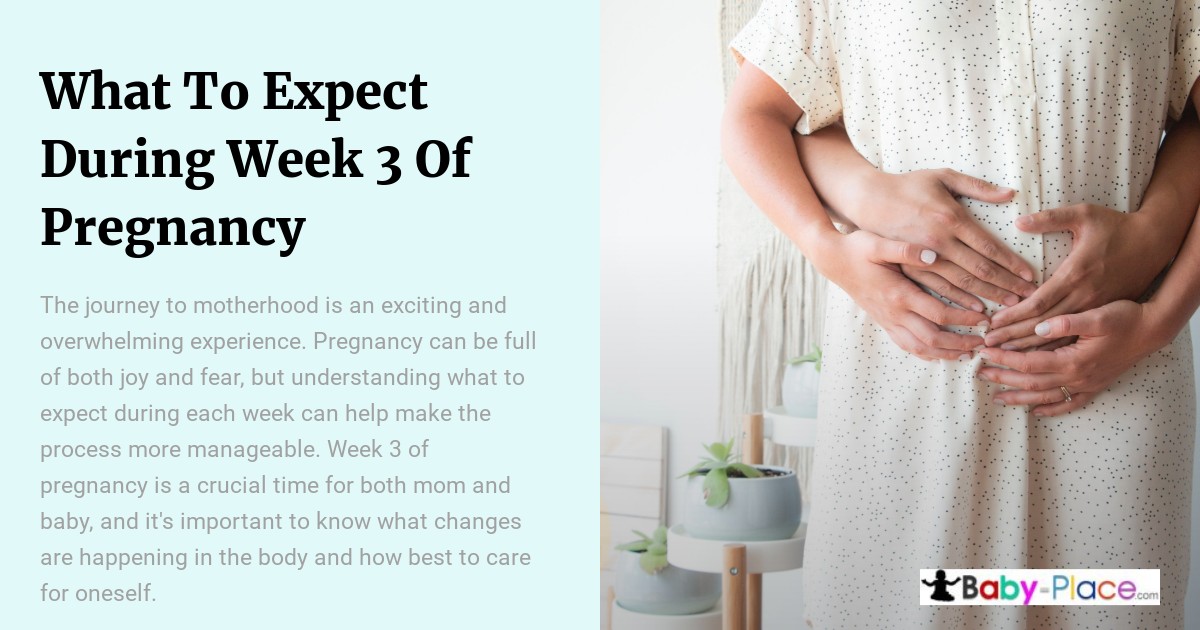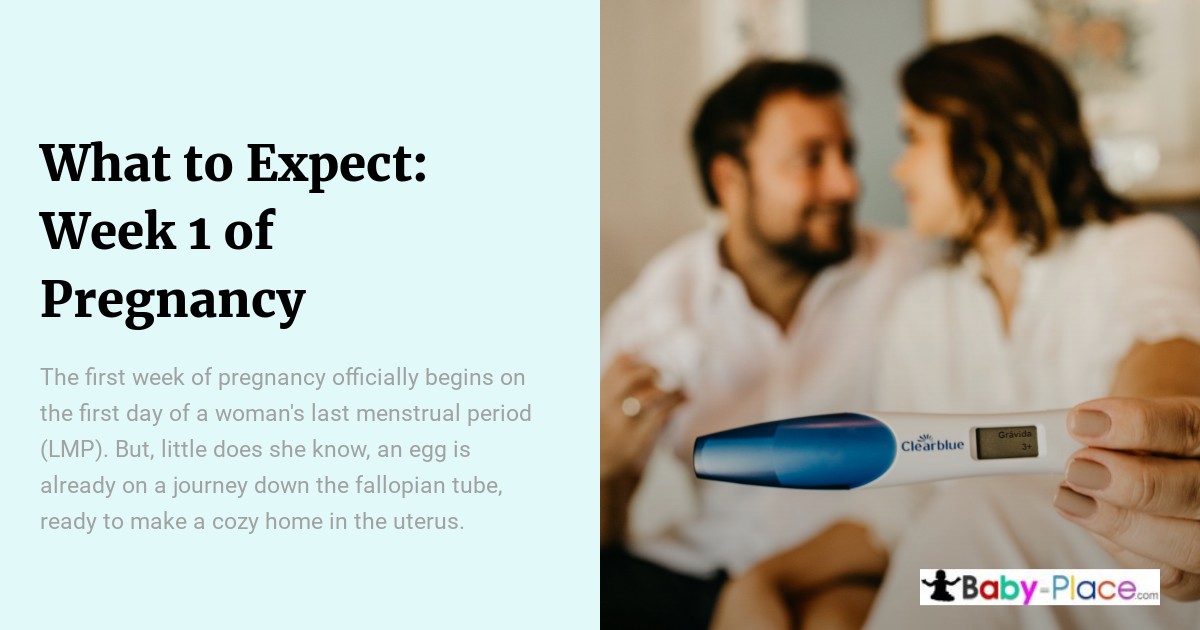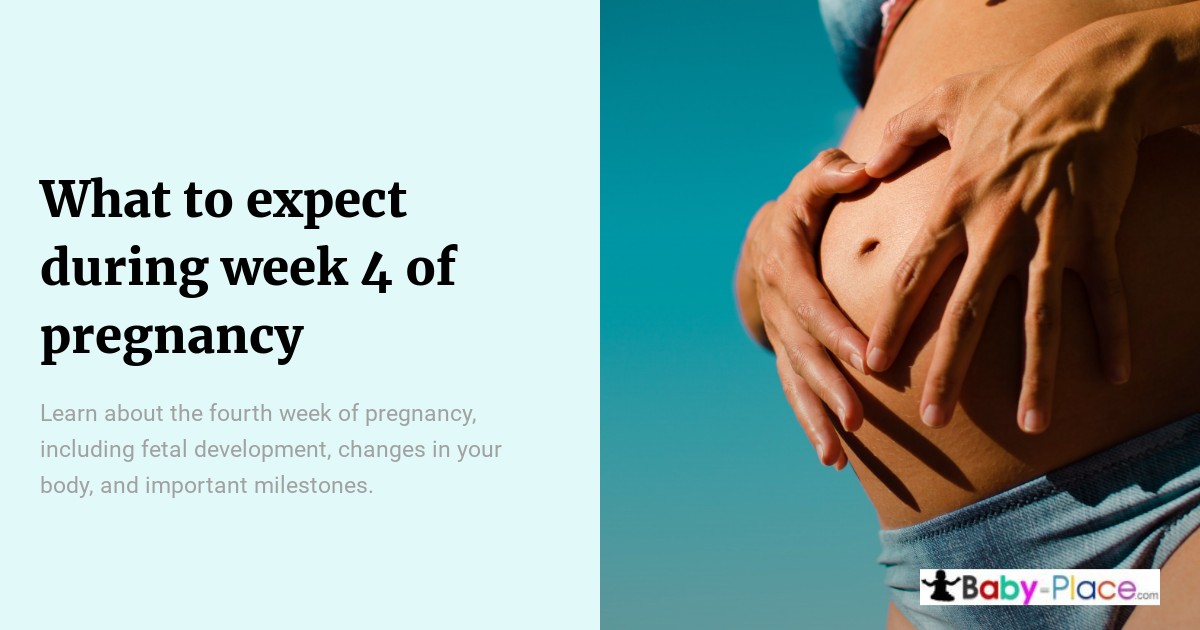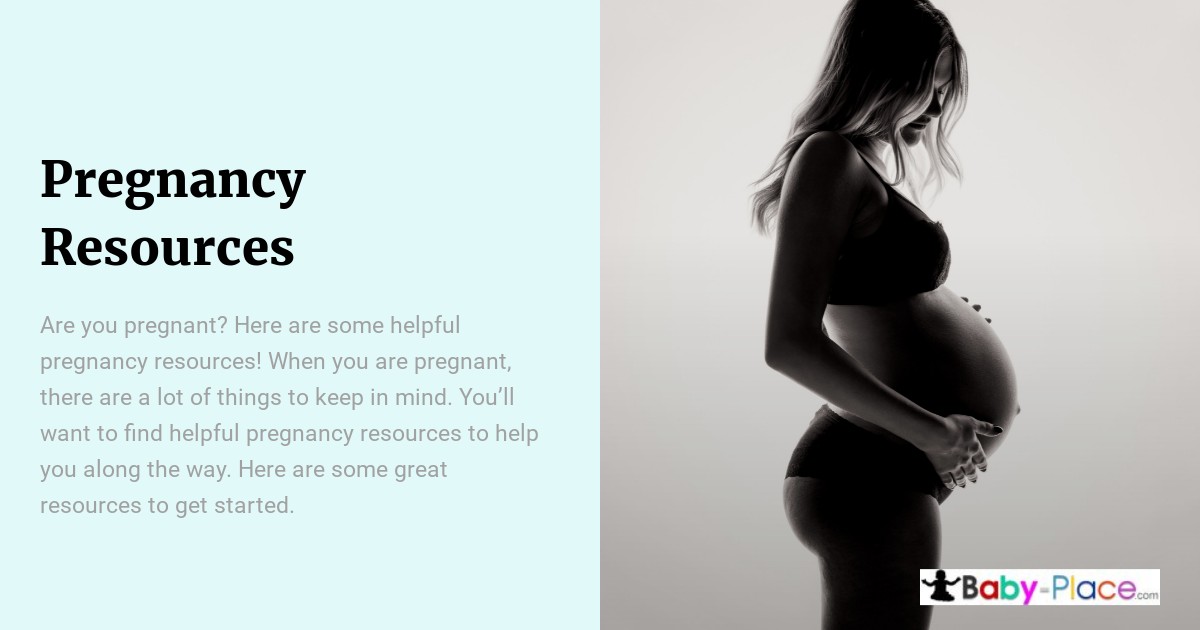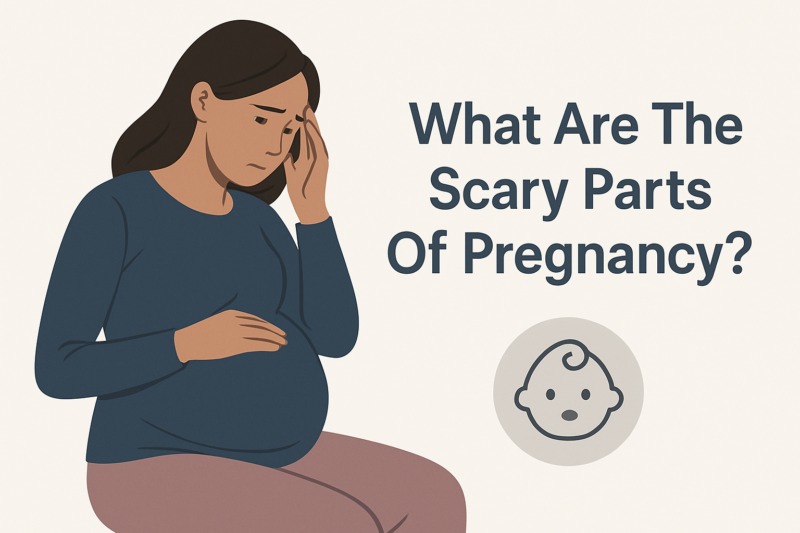
Pregnancy is a life-changing and rewarding experience for many women. However, it can also bring about anxiety and fear due to the unknowns associated with this special time in one’s life. As an obstetrician-gynecologist, I understand that women may worry about potential risks or complications during their pregnancy. This article will discuss some of the scariest parts of pregnancy and how they can be managed.
For starters, there are medical concerns related to both mother and baby. Women may worry about preterm labor, high blood pressure during pregnancy (known as preeclampsia), placental abruption (when the placenta detaches from the uterine wall) or any other number of issues that could arise while pregnant. Additionally, mothers may have fears regarding delivery itself – such as a long labor or emergency cesarean section – which can cause understandable stress.
Finally, women often feel overwhelmed by all of the changes happening in their body throughout each trimester. From morning sickness to fatigue; breast tenderness to mood swings; these experiences are normal but can still be disconcerting for expecting moms who don’t know what to expect along the way. Read on to learn more about managing these scary aspects of pregnancy so you can enjoy your journey ahead!
Definition
Pregnancy is a beautiful and exciting experience. It brings with it many changes to the body, some of which can be quite daunting. It’s important to understand that while there may be frightening aspects of pregnancy, most women will go through their pregnancies without any major complications or issues. That said, one should not ignore the potential risks associated with having a baby.
There are several scary parts of pregnancy that every woman should consider before making her decision to pursue motherhood. These include the risk of preterm labor and delivery, postpartum depression, gestational diabetes, preeclampsia, placenta previa, placental abruption and other medical conditions such as thrombophilia. There is also an increased risk for miscarriage and stillbirth in certain cases. All these possibilities must be taken into account when planning for a pregnancy. Being knowledgeable about these health concerns can help prepare a pregnant woman for what she might face during her journey towards parenthood.
Common Fears And Anxieties
Pregnancy can be a time of great excitement, but it can also bring up some fears and anxieties. Women commonly worry about the risk of miscarriage or complications with their pregnancy, delivery, or infant health. They may fear that they will not bond with the baby once he or she is born. Other women might feel overwhelmed by the physical changes in their body during pregnancy, such as nausea, fatigue, and weight gain.
Some may even experience mental health issues like depression or anxiety due to hormonal fluctuations and lifestyle adjustments. All these worries are normal and valid; however, talking to your healthcare provider can help you cope with them more effectively. Seeking support from family members, friends, online groups and organizations can provide additional reassurance. Ultimately, having a positive attitude towards life while being mindful of risks associated with pregnancy is key for both mother’s emotional well-being and her unborn child’s safety.
Potential Complications During Pregnancy
Pregnancy is a time of joy and anticipation, but it can also be filled with worry. It’s important to remember that while most pregnancies are healthy, there are potential complications that should be monitored closely by an obstetrician-gynecologist (OB/GYN).
The health professional will look out for the following issues:
Complications related to the mother:
- Preterm labor
- High blood pressure
- Preeclampsia or eclampsia
- Gestational diabetes
- Anemia
Complications related to baby:
- Chromosomal abnormalities like Down syndrome or Edwards’ Syndrome
- Congenital heart defects
- Neural tube defects such as spina bifida
It is essential that pregnant women stay up to date on their prenatal care visits in order to monitor these conditions and take any necessary steps if needed. Early detection of any problems during pregnancy can help ensure optimal outcomes for both mom and baby.
Normal Versus Abnormal Symptoms
Now that we’ve discussed potential complications during pregnancy, let’s focus on the normal versus abnormal symptoms. It is important to remember that every woman and pregnancy are different; what may be an “abnormal symptom” for one person may actually just be a unique experience of another.
| Normal Symptoms | Abnormal Symptoms |
|---|---|
| Fatigue | Severe headaches |
| Nausea | Unusual pains |
| Mood swings | Sudden weight gain |
| Swollen ankles | Decrease in activity levels |
| Backaches | Swelling around face/hands |
During your prenatal visits, it is always best to inform your healthcare provider about any physical or emotional changes you experience throughout your entire pregnancy journey. Knowing how to differentiate between normal and abnormal symptoms can help you stay aware of potential issues and alert your doctor if anything out of the ordinary arises. Therefore, it is always recommended that pregnant women make regular appointments with their obstetrician-gynecologist (OBGYN) so they can keep track of all signs and symptoms associated with their pregnancy. With proper monitoring from an OBGYN, as well as understanding which symptoms should trigger concern, expecting mothers can ensure their own health and safety as well as the health and safety of their unborn child.
Unexpected Changes In The Body
Pregnancy is a time of tremendous physical and emotional change. Unexpected changes in the body can be quite scary, especially for first-time mothers. The abdomen begins to expand as your baby grows, sometimes accompanied by back pain or cramping. You may feel like you’re losing control over your own body! Hormone levels also rise dramatically during pregnancy, which can cause mood swings, nausea, headaches and more. Your breasts may become tender and sore due to an increase in hormones that help prepare them for breastfeeding later on. As your belly continues to grow, so does your skin – causing stretch marks that some women find unsightly. All these unexpected physical changes are normal during pregnancy but can still surprise many expecting moms! It’s important to remember that regular checkups with your doctor will ensure both you and your baby remain healthy throughout this incredible journey.
Challenges Of Being A New Parent
Pregnancy can be a scary and intimidating experience, but the challenges do not end there. Being a new parent comes with its own set of difficulties that expectant parents should prepare for in advance:
- Time Commitment– Becoming a parent means dedicating your time to caring for another human being. This includes long nights of feeding and comforting them as well as other time-consuming tasks like changing diapers and administering medicine.
- Financial Responsibility – Having a child will come with lifelong financial obligations such as childcare expenses, medical bills, and education costs down the line. It is important to plan ahead financially so you have enough funds to cover all these needs when they arise.
- Emotional Rollercoaster – Taking care of an infant or toddler is often unpredictable which can lead to feelings of frustration or exhaustion from trying to keep up with their needs. Additionally, parenting brings both joys and sorrows throughout the years that require patience and understanding on behalf of the parents.
It’s natural to feel overwhelmed by parenthood at first, but it also offers many rewards along the way if you are prepared for what lies ahead. With proper planning and realistic expectations, becoming a new parent can be one of life’s most rewarding experiences!
Risk Factors For Preterm Birth
Despite the joys of pregnancy, there are several scary components that can place a fetus at risk. Preterm birth is one of these risks and it occurs when an infant is born before 37 weeks gestation. While some preterm births cannot be prevented, understanding potential risk factors can help reduce its likelihood.
First, conditions such as multiple gestations (carrying more than one baby), placenta previa (when the placenta covers part or all of the cervical opening) and premature rupture of membranes (rupture of amniotic sac prior to labor) increase a woman’s chance of giving birth prematurely. Additionally, certain health complications like preeclampsia (high blood pressure in pregnant women also accompanied by excess protein in urine) may lead to premature delivery if left untreated. Furthermore, age plays an important role; younger mothers (<20 years old) and older mothers (>35 years old) both have higher rates of delivering their babies early compared to those between 20-30 years old.
An obstetrician-gynecologist will assess each patient’s individual risk factors for preterm birth during prenatal visits and recommend lifestyle changes accordingly to minimize any associated dangers with carrying a baby full term. With proper care, most healthy pregnancies culminate in successful deliveries after 38-42 weeks gestation.
Gestational Diabetes
Gestational diabetes is a condition in which pregnant women have high blood sugar levels during pregnancy. It can be very serious as it increases the risk of health problems for both mother and baby, including preterm birth and stillbirth.
| Symptoms | Complications |
|---|---|
| Increased thirst | Low blood sugar (hypoglycemia) in the newborn |
| Frequent urination | High birth weight or large for gestational age (LGA) |
| Blurred vision | Pre-eclampsia & eclampsia |
| Fatigue | Respiratory distress syndrome in infants/babies |
| Unusual weight gain | Stillbirths & miscarriages |
It’s important to recognize the signs of gestational diabetes early on so that medical attention can be sought right away in order to reduce the risks associated with this condition. Common symptoms include increased thirst, frequent urination, blurred vision, fatigue and unusual weight gain. If left unmanaged, complications such as low blood sugar (hypoglycemia) in the newborn, high birth weight or large for gestational age (LGA), pre-eclampsia & eclampsia, respiratory distress syndrome among others may arise leading to potential long term impacts on the overall health of both mother and child. Therefore vigilance throughout pregnancy is highly recommended by obstetrician-gynecologists.
Maternal Depression And Anxiety
Moving on to maternal depression and anxiety, these two conditions are among the scariest parts of pregnancy. Depression and anxiety during pregnancy can lead to serious complications for both mother and baby. It is important to recognize the signs of these disorders and seek help from a mental health professional if needed.
It is estimated that up to 20% of pregnant women suffer from depression or anxiety at some point during their pregnancies; however, many may not be aware they have it as symptoms can be subtle. Common symptoms include feeling overwhelmed, hopelessness, low self-esteem, difficulty sleeping, appetite changes, loss of interest in activities once enjoyed, irritability, difficulty concentrating, fatigue and restlessness. If left untreated, studies have shown an association between maternal depression/anxiety and preterm labor/birth as well as postpartum depression which can affect bonding with the newborn child.
Therefore it is essential for healthcare providers to screen pregnant patients routinely for depressive symptoms so treatment options can be explored early on before any potential adverse effects occur. Pregnant women should also talk openly about how they’re feeling with family members who will provide emotional support throughout this time.
Labor And Delivery Complications
Have you ever wondered about the potential complications that may arise during labor and delivery? It is important to understand how a mother’s body will react and be prepared for any possible scenarios. When it comes to childbirth, there are many things that can go wrong, such as placental abruption, preeclampsia, cord prolapse and shoulder dystocia. Placental abruption occurs when the placenta partially or completely separates from the uterine wall before birth. Preeclampsia is characterized by high blood pressure and protein in the urine, while cord prolapse occurs when the umbilical cord slips out of the uterus before or during birth. Shoulder dystocia happens when one of baby’s shoulders gets stuck behind your pubic bone after their head has already been delivered.
These conditions can cause serious medical issues not just for mom but also for baby. Without proper management, these complications can lead to decreased oxygen supply to the fetus as well as potentially life-threatening maternal bleeding which could result in long-term health problems like brain damage or even death for both mother and child. Therefore, it is essential for expecting mothers to receive regular prenatal care throughout their pregnancy so that any abnormalities can be identified early on and managed accordingly. Although we cannot predict every single complication that might appear during labor and delivery, awareness of them can help us better prepare ourselves should anything unexpected arise during this special time.
Postpartum Depression And Anxiety
Postpartum depression and anxiety are two of the scariest parts of pregnancy. These conditions can affect a woman’s mental health, both during and after her pregnancy.
First, postpartum depression is a mood disorder that affects many women following childbirth. Symptoms include:
Emotional changes:
- Feelings of sadness or emptiness
- Mood swings
- Feeling overwhelmed or unable to cope with daily tasks
Physical changes:
- Changes in appetite or weight
- Sleep disturbances
- Loss of energy or fatigue
Second, postpartum anxiety can be experienced by some women shortly after giving birth. It often presents itself as feelings of intense worry about their baby’s health and safety. Common symptoms include racing thoughts, difficulty sleeping, muscle tension, intrusive thoughts and overwhelming fear. As such, it is important for all new mothers to seek professional help if they experience any of these symptoms after childbirth.
It is essential that pregnant women take the necessary steps to protect themselves from postpartum depression and anxiety. This includes seeking out medical advice early on in their pregnancy journey so that appropriate treatment options can be discussed if needed. Additionally, getting enough rest and support from family members is key to managing stress levels throughout pregnancy and afterwards.
Stressful Financial Implications Of Having A Baby
Let’s face it – having a baby is expensive. One might ask, what makes this so? Well, in my experience as an obstetrician-gynecologist, I have seen that the financial burden of having a baby can be quite overwhelming for many families.
| Item | Avg Cost (USD) |
|---|---|
| Pre Natal Care | 2 500 |
| Delivery | 10 000 |
| Post Partum Care | 1 700 |
In addition to these direct expenses associated with carrying and delivering the little bundle of joy, there are also indirect costs such as childcare, clothing, toys and other items to consider when budgeting for your new family member. Then there are maternity leave considerations and loss of income due to taking time off work during pregnancy and following childbirth. On top of all of this, if you’re a first time parent or have had any complications during the pregnancy then insurance premiums may increase significantly adding more stress on already tight budgets. All these factors combined make bringing up a child no easy task!
It goes without saying that having a baby will change your life in ways both great and small – but one thing’s for sure: it won’t come cheap! It takes careful planning ahead of time to ensure you can provide financially for yourself and your growing family. With proper preparation however, you should be able to weather most storms that come along with parenting – at least from a financial standpoint anyway!
Taking Care Of Your Mental Health During Pregnancy
Pregnancy can be both an exciting and a scary time. It is important to take care of your mental health throughout the pregnancy journey. This means recognizing any negative feelings, such as anxiety or depression, and finding ways to cope with them.
It’s natural to feel overwhelmed during pregnancy, so try talking to someone you trust about how you’re feeling. You may also find it helpful to practice relaxation techniques like deep breathing exercises, yoga or meditation. If these methods don’t work for you, consider seeking professional help from a counselor or therapist who specializes in maternal mental health.
You should also make sure that you get enough rest and exercise regularly throughout your pregnancy. Take breaks when needed and ask for help if you need it – this will allow you to take some much-needed time off from all the responsibilities associated with being pregnant! Above all else, remember that taking care of yourself is essential for having a healthy baby and happy pregnancy experience.
Coping Strategies For Managing Fear And Anxiety
For many expecting mothers, fear and anxiety are a normal part of the pregnancy experience. Take Alice, for example; she has been struggling with feelings of uncertainty since she found out that she was pregnant. To help her cope with these emotions, Alice has sought out various strategies to manage her fear and anxiety during pregnancy.
The first step in managing fear and anxiety is learning about what to expect during each stage of childbirth. This can be done by attending classes or talking to other parents who have had similar experiences. It’s also important for pregnant women to practice self-care activities such as yoga, meditation, massage therapy, and spending time outdoors in nature. All of these activities can help reduce stress levels and provide emotional support throughout the pregnancy journey. Additionally, it can be beneficial for expecting mothers to connect with friends or family members who understand their situation and offer emotional support when needed.
These coping strategies can help create an environment in which feeling scared or anxious no longer dominates one’s thoughts during the pregnancy period. For Alice specifically, these techniques have allowed her to approach her upcoming childbirth with more confidence than before. By being aware of available resources and proactive in utilizing them, Alice now feels empowered rather than overwhelmed at this exciting new chapter in life!
Support Resources For Expectant Mothers
Once you have accepted and managed your fears, it is important to seek support resources for expectant mothers. There are a variety of resources available that can provide emotional, educational, and practical assistance during pregnancy.
Your obstetrician-gynecologist should be the first place you turn to with any questions or concerns regarding your health or the health of your baby. You may also benefit from talking to other pregnant women who understand what you’re going through. Additionally, many organizations offer specialized programs tailored specifically to pregnant women such as prenatal classes and nutrition counseling.
It is crucial for all expecting mothers to take advantage of these valuable resources in order to feel more confident about their physical health and mental well being throughout pregnancy. Utilizing this support will help ensure both mother and baby remain healthy and safe until delivery day arrives.
Conclusion
Having a baby is one of the most exciting and rewarding experiences. However, it can also bring up many fears and anxieties that may seem overwhelming. As an obstetrician-gynecologist, I want to encourage expectant mothers to stay informed about all aspects of pregnancy, including potential complications and changes in their bodies. It’s important to acknowledge these worries, rather than trying to suppress them or pretend they don’t exist — dealing with fear through open communication will help you find peace and manage stress levels.
I advise pregnant women to take time out for themselves each day: focus on being mindful, practice calming activities such as meditation or yoga, and connect with friends and family who can provide emotional support when needed. Finally, if your anxiety becomes too much to bear alone, there are numerous resources available from health professionals who specialize in helping people cope with stressful situations during pregnancy.
The journey of becoming a parent doesn’t come without its challenges; however, by understanding what scares us we can more effectively confront our apprehensions while still cherishing this special moment in life. Acknowledging fear allows us to appreciate the beauty of carrying a new life into the world — something that should be celebrated!
Frequently Asked Questions:
What are some common medical concerns during pregnancy?
Common medical concerns during pregnancy include preterm labor, high blood pressure (preeclampsia), placental abruption, gestational diabetes, and complications related to delivery such as emergency cesarean sections.
What are normal versus abnormal symptoms during pregnancy?
Normal symptoms include fatigue, nausea, mood swings, and swollen ankles. Abnormal symptoms may include severe headaches, unusual pains, sudden weight gain, swelling around the face or hands, and a decrease in activity levels. Always consult your healthcare provider if you experience concerning symptoms.
What are the risks of gestational diabetes?
Gestational diabetes can lead to complications such as low blood sugar in the newborn, high birth weight, pre-eclampsia, respiratory distress syndrome in infants, and an increased risk of stillbirth. Early detection and management are crucial to reducing these risks.
How can expectant mothers manage fear and anxiety during pregnancy?
Expectant mothers can manage fear and anxiety by staying informed, practicing self-care activities like yoga and meditation, seeking emotional support from friends and family, and consulting healthcare professionals if anxiety becomes overwhelming. Prenatal classes and support groups can also be helpful.
What are some potential complications during labor and delivery?
Potential complications during labor and delivery include placental abruption, preeclampsia, cord prolapse, and shoulder dystocia. These conditions can pose risks to both mother and baby, so regular prenatal care and early detection are essential for managing them effectively.


